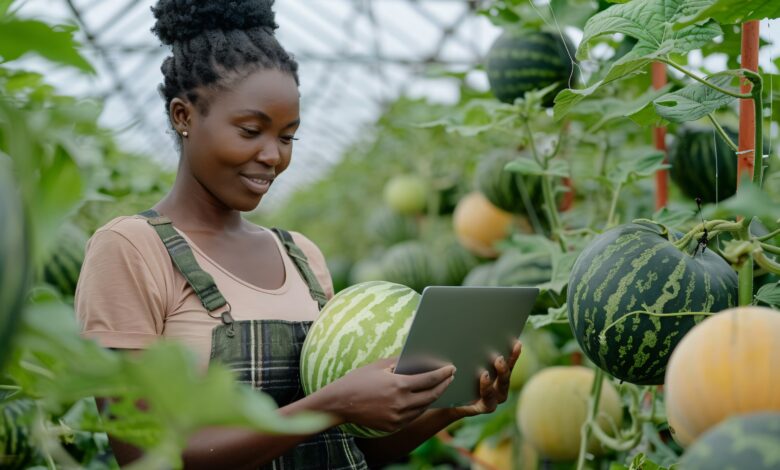Apply for Agriculture Learnerships

Introduction
Agriculture is one of the most important sectors in South Africa’s economy. It not only provides food security for millions of people but also creates thousands of jobs across farming, agri-processing, forestry, and related industries. As the country continues to face challenges such as unemployment and poverty, agriculture presents an opportunity for young people and job seekers to build sustainable careers.
One of the most effective entry points into this sector is through agriculture learnerships. These structured programs are designed to combine theoretical knowledge with practical skills, enabling learners to gain valuable industry experience while earning recognized qualifications.
If you have ever wondered how to apply for agriculture learnerships in South Africa, this comprehensive guide will walk you through everything you need to know, including requirements, benefits, application steps, and tips for success.
What is an Agriculture Learnership?
A learnership is a vocational training program regulated by the South African Qualifications Authority (SAQA) and supported by Sector Education and Training Authorities (SETAs). In agriculture, learnerships provide training in areas such as:
- Crop production (maize, wheat, vegetables, fruits, etc.)
- Animal production (poultry, cattle, sheep, goats, pigs)
- Agribusiness and farm management
- Agricultural extension services
- Agri-processing and packaging
These programs are funded by the government, private companies, or SETAs such as AgriSETA, which is responsible for developing skills in the agricultural sector.
Benefits of an Agriculture Learnership
Agriculture learnerships offer numerous advantages, including:
- Nationally Recognized Qualification – You obtain a certificate accredited by SAQA and AgriSETA.
- Practical Experience – You gain hands-on farming and agribusiness exposure.
- Monthly Stipend – Most learnerships provide a stipend to cover transport and basic living expenses.
- Employment Opportunities – After completion, learners are better positioned for jobs in farming, food production, or agribusiness.
- Career Growth – The qualification can serve as a stepping stone toward diplomas, degrees, or entrepreneurship in agriculture.
Who Can Apply for Agriculture Learnerships?
The minimum requirements vary depending on the program, but the general criteria are:
- Education: At least Grade 9, but some programs may require Grade 10–12 (Matric).
- Age: Usually between 18–35 years.
- Citizenship: South African citizen with a valid ID.
- Residency: Must live in South Africa, often near farming or rural communities.
- Criminal Record: Must have a clean record.
- Passion for Agriculture: Applicants should demonstrate interest in farming, agribusiness, or food production.
Types of Agriculture Learnerships
Agriculture is diverse, and learnerships cover multiple areas, including:
- Crop Production Learnerships (horticulture, sugarcane, fruit, vegetables, grains)
- Animal Production Learnerships (poultry, cattle, sheep, dairy farming)
- Agri-processing Learnerships (food packaging, canning, milling, meat processing)
- Farm Management (finance, record-keeping, and planning)
- Agricultural Mechanisation (tractor and equipment operation)
- Forestry and Environmental Management (sustainable farming and conservation)
Step-by-Step Guide: How to Apply for Agriculture Learnerships
Step 1: Prepare Your Application Documents
You will generally need:
- Certified copy of your South African ID
- Certified copy of your school certificate (Grade 9, 10, or 12)
- Updated Curriculum Vitae (CV)
- Proof of residence
- Motivation letter (optional but recommended)
Step 2: Search for Available Learnerships
You can find opportunities from different sources:
- AgriSETA official website (they publish learnerships across provinces).
- Department of Agriculture, Land Reform and Rural Development.
- Private companies such as South African Sugar Association (SASA), Distell, Tiger Brands, and Coca-Cola.
- Farming cooperatives and training academies in your province.
- Online job portals like Indeed, PNet, Careers24, and government websites.
Step 3: Submit Your Application
Applications can usually be submitted:
- Online via company or government career portals.
- By email with scanned documents.
- In person at agricultural colleges, cooperatives, or SETA offices.
Always follow the instructions carefully to avoid disqualification.
Step 4: Attend Interviews or Assessments
Shortlisted applicants may be invited to:
- A literacy and numeracy test.
- A practical farming skills test.
- An interview to assess interest and motivation.
Step 5: Begin Your Learnership
If successful, you will sign a contract and begin training. Most agriculture learnerships last 12 months, combining classroom sessions with farm-based experience.
Key Agriculture Learnership Providers in South Africa
- AgriSETA – Manages and funds agriculture-related skills programs.
- Department of Agriculture, Land Reform and Rural Development – Provides youth-focused agricultural learnerships.
- SASA (South African Sugar Association) – Offers sugarcane farming learnerships.
- Food and Beverage Companies – Tiger Brands, Clover, Coca-Cola, and Distell run agri-processing learnerships.
- Agri-Colleges – Glen College of Agriculture, Cedara Agricultural College, and others host learnership programs.
What to Expect During Training
During an agriculture learnership, you will cover both theory and practical work:
- Theory Modules:
- Agricultural science basics
- Soil preparation and fertilization
- Crop management and harvesting
- Animal nutrition and breeding
- Agribusiness and marketing
- Health, safety, and environmental management
- Practical Modules:
- Working on farms or agri-processing facilities
- Planting, irrigation, and pest control
- Feeding, breeding, and caring for livestock
- Packaging, processing, and quality control
Challenges You May Face
- Rural Relocation – Some programs are based in rural farming communities.
- Physical Demands – Agriculture involves manual labor, long hours, and outdoor work.
- Limited Positions – High competition for funded programs.
- Transport Issues – Some farms are located far from urban centers.
Career Opportunities After Completing an Agriculture Learnership
Once you complete the program, you’ll be equipped to pursue jobs such as:
- General farm worker
- Crop production assistant
- Animal production assistant
- Packhouse or processing plant worker
- Agricultural sales representative
- Agribusiness entrepreneur
With experience, you could move into supervisory roles, farm management, or even start your own small-scale farming business.
Tips to Increase Your Chances of Success
- Apply to multiple programs instead of waiting for one response.
- Highlight your interest in agriculture in your CV or motivation letter.
- Keep your documents updated and certified.
- Prepare for physical assessments – stay healthy and fit.
- Be open-minded – even if you start as a general worker, there is room to grow.
Agriculture is more than just farming — it is the backbone of food security and rural development in South Africa. By applying for an agriculture learnership, you not only gain practical skills but also open the door to a wide range of career opportunities.
The application process is straightforward: prepare your documents, search for opportunities, submit your application, and attend interviews or assessments. With commitment and passion, you can successfully complete the program and build a rewarding career in this essential sector.
If you are a young person with at least a Grade 9 qualification and a genuine interest in farming or agribusiness, then an agriculture learnership could be your gateway to a brighter future.
